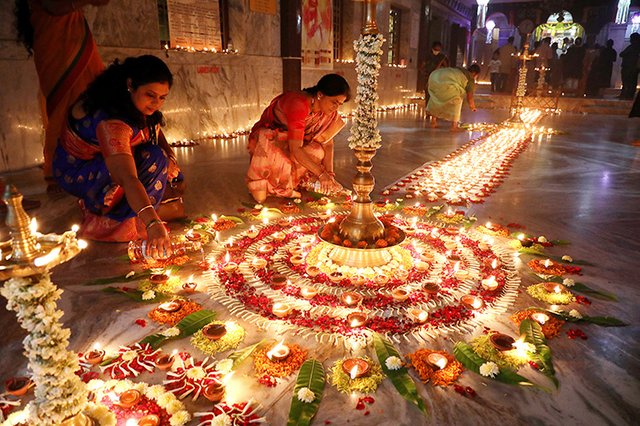Festival of Lights: Diwali

One of the most anticipated and celebrated festivals in India, Diwali, commonly referred to as the "Festival of Lights," holds a special place in the hearts of millions. This ancient festival signifies the triumph of light over darkness and good over evil. With its rich cultural significance, Diwali is not only a time for religious observance but also a time for joy, togetherness, and merriment.
Historical and Cultural Significance:
Diwali's origins trace back thousands of years to various legends and historical events. One of the most well-known stories is the return of Lord Rama to Ayodhya after his victory over the demon king Ravana. The residents of Ayodhya lit oil lamps to welcome him home and celebrate his victory, which is said to symbolize the victory of righteousness over wickedness. In another context, Diwali is also celebrated to honor the goddess of wealth, Lakshmi, and to seek her blessings for prosperity and well-being.
Festival Preparations:
The preparations for Diwali begin weeks in advance, with families cleaning and decorating their homes. Traditional rangoli designs (intricate patterns made with colored powders or rice flour) adorn doorsteps, and homes are illuminated with a dazzling array of lights, diyas (oil lamps), and candles. New clothes are bought, and households are filled with the aroma of delicious sweets and savory treats being prepared.
The Festival Rituals:
Diwali is typically celebrated over a span of five days, each day holding its own significance and rituals. The main day of Diwali falls on the third day, when families gather for prayers, exchange gifts, and indulge in festive feasting. People light diyas and candles to illuminate their homes and create a festive atmosphere.
Fireworks and Crackers:
Though fireworks have become a controversial aspect of Diwali due to concerns about air pollution and safety, they have long been associated with the festival. Traditionally, firecrackers were believed to ward off evil spirits. However, in recent times, many individuals and communities have shifted towards eco-friendly celebrations by minimizing the use of fireworks and opting for alternative forms of entertainment.
Community and Togetherness:
Diwali is not just a celebration within the confines of homes; it is also a time for community bonding. Friends and families come together to celebrate, exchange gifts, and partake in festive meals. Temples and public spaces are decorated with lights, and various cultural events and performances take place to spread the festive spirit.
Global Observance:
While Diwali is predominantly celebrated in India, its cultural significance has transcended borders. Communities around the world, including those in countries such as Nepal, Sri Lanka, Singapore, Malaysia, and the United States, also celebrate this joyous festival. In places like the United Kingdom and Australia, iconic landmarks are illuminated in vibrant colors to mark the occasion.
Modern Relevance:
Beyond its religious roots, Diwali continues to hold relevance in modern times. The festival promotes values of unity, hope, and the pursuit of goodness. It encourages people to cast away negativity and embrace positivity. The act of lighting lamps symbolizes the dispelling of darkness from our lives and spreading light and positivity to the world.
In conclusion, Diwali is a festival that encompasses a rich blend of history, spirituality, and culture. It is a time of joy, reflection, and renewal, where families come together, homes are illuminated, and hearts are filled with gratitude and love. As the "Festival of Lights," Diwali serves as a reminder that even in the darkest of times, light and goodness will ultimately prevail.